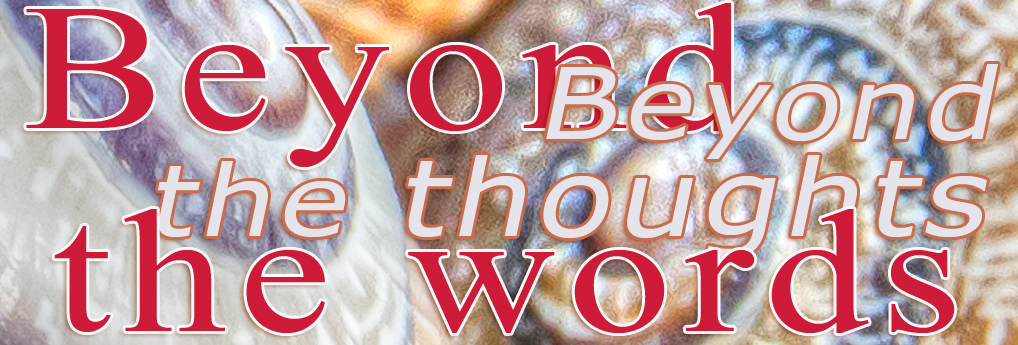I am not a Bible expositor. I am not even a member of the church anymore. So all Bible specialists may forgive, if I tell now hanebüchenen nonsense. It is allowed to me hopefully in my ignorance of the true Bible interpretation.
Many years ago I once bought the Bible as an audio book. Again, for many years it stood unheard on our shelf, until one day I felt the need to listen to the Gospels. So for days, hour after hour, I listened to the story of the life and ministry of Jesus Christ. I thought I knew a little about him from the religion classes of my school days, but I was surprised. What I was hearing was the story of a great spiritual healer! Of a person who had experienced the truth and surrendered to that truth in all consistency. Until his predictable violent death. Who in those times got on the feet of the influential ones in such a way, had to reckon with it. A holy mystic whose words and actions seemed so clear to me. So completely without need of interpretation. So clear in their inner truth. He had really seen them!
Now he himself as the son of God (as we all are children of God, the Divine, the Goddess or completely different) was a child of his time and took as a framework for his teachings the then current thinking in worldly and religious terms. But this did not change the inner eternal truth of his cognition. He only expressed it according to his time. „Unfortunately“ one would almost like to say. So he just spoke of God, the Father, when he wanted to explain himself to the simple man at that time. The tradition of the Old Testament has now once this personalized God with his all too human characteristics, which make him look for us like the old man with beard.
If Jesus had tried to put his insights about the divine in a more abstract way (perhaps as the Chinese „nameless Dao“, the „way“), he would probably not have been understood by his contemporaries. So he then says „Son of God“ and „God the Father“. He surely does not mean a man with human characteristics who sits in a chair and loves us and also punishes us and begets us in a human way. In the end, he also spoke of the divine, all-creating, ineffable power.
The mention of punishment testifies for me in the first place to the realization that it rather leads to the right to turn to the divine and not to attach too much importance to the worldly. But not to the „right“ according to human small idea of morals and raised finger. But to the right beyond this conception. The eternal right. The not sayable right. Jesus has recognized the eternal truth, which was not immediately obvious for the small simple inhabitant of Judea – with all his earthly striving and material desires. Leaving everything behind, donating everything, and turning both right and left cheeks… that’s not particularly hip today, and probably wasn’t 2000 years ago. So Jesus used the image of punishment to create emphasis. „Unfortunately“ one would like to say again in retrospect of history.
But the punishment that Jesus means is something different. It has nothing to do with worldly concept of punishment. The punishment is a life without unity. It is self-inflicted. It is a punishment that is immediately apparent only to the spiritual man. It is not apparent to the material man. He thinks that he is blessed when he sees all material desires satisfied.
At this point, I will briefly turn to a Daoist story: A man spoke to a wise man: „It is said that the pursuit of the Dao will make you rich. But if I have gold and jade, then I am also rich. Why should I strive for the Dao?“
The sage then gives a lot of commonplaces, in the direction that one would be respected by the other people and would not be in danger and so on. Thereby he explains these reasons remarkably long-winded and confused. Even the most sympathetic reader must come to the realization, „Well, if the wise man can’t think of anything better, I’d rather stick to gold and jade.“ When I first read the story, I was taken aback and could not grasp this apparent platitude. That was not the right answer the sage had given there! I read this story again and again and at some point I realized to my relief: This is exactly what this story wants to achieve. The reader realizes that the secret of the Dao cannot be conveyed to a materialist with words. That it cannot be expressed in discourse, in words at all. It will always remain pale and empty. And the materialist will shrug his shoulders unmoved, feel confirmed and go his way with gold and jade.
Thus, this problem transcends epochs and cultures. The approach to this pattern is only different: The Daoist sage does not care. Whom he cannot enlighten, he remains unenlightened. Jesus apparently does care. He wants to show people their error and constructs the image of punishment to have a „convincing“ argument against gold and jade. If the true argument already cannot be said. „Unfortunately.“
